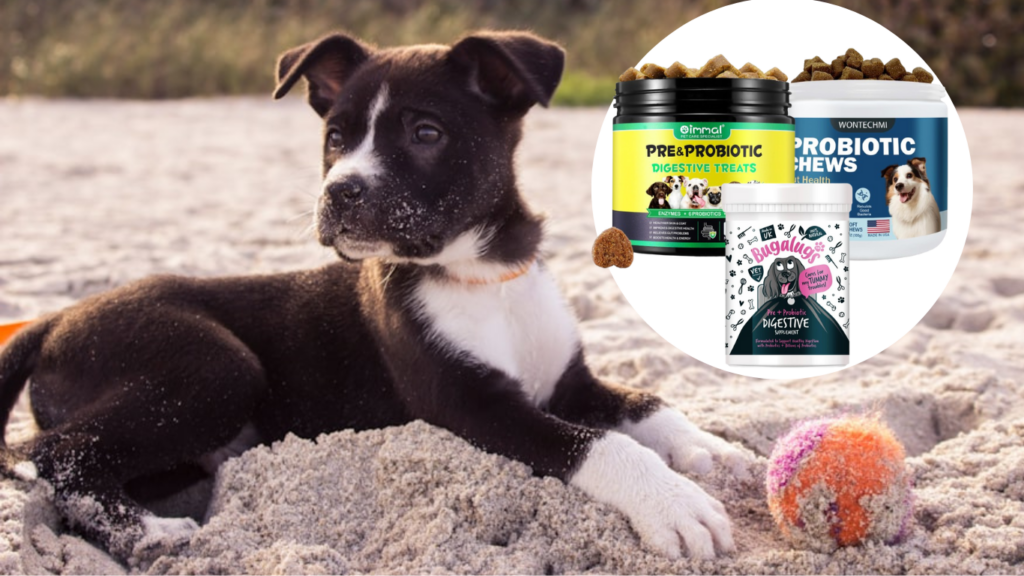The popularity of probiotics among dog owners and veterinarians has surged in recent years, thanks to their potential benefits for gut health and overall well-being. Probiotics are live microorganisms that can positively influence digestion, immune function, and even mental health in pets. However, not all probiotics are created equal, and their effects can differ from one dog to another. This article explores the common side effects of probiotics and offers guidance for safely incorporating them into your dog’s routine.
Key Takeaways
- Probiotics can enhance gut health and overall well-being in dogs.
- Potential side effects include gastrointestinal upset, allergic reactions, and overgrowth of harmful bacteria.
- Monitoring your dog closely during the introduction of probiotics is crucial.
Common Side Effects of Probiotics
- Gastrointestinal Upset: A frequent side effect of probiotics is gastrointestinal discomfort, which may present as diarrhea, gas, or bloating. These symptoms often occur as your dog’s digestive system adapts to new bacteria. While mild disturbances are common and typically resolve within a few days, persistent issues could indicate an unsuitable probiotic strain or excessive dosage.
- Allergic Reactions: Though less common, allergic reactions to probiotics can occur. Symptoms may include itching, hives, or swelling. Severe cases can lead to anaphylaxis, requiring immediate veterinary intervention. Pet owners should read ingredient labels carefully and introduce probiotics gradually to monitor for any adverse reactions.
- Overgrowth of Harmful Bacteria: Rarely, an imbalance may arise, leading to the overgrowth of harmful bacteria in the gut. This can happen if a dog has underlying health issues or receives probiotics without veterinary guidance. Symptoms of this imbalance may include persistent diarrhea and lethargy, necessitating prompt veterinary care.
- Interactions with Medications: Probiotics can interact with certain medications, such as antibiotics. While probiotics may help restore gut flora during or after antibiotic treatment, they can also be less effective if not timed correctly. Always consult your veterinarian about any medications your dog is taking before starting probiotics.

Guidelines for Safe Probiotic Use
- Choose Quality Products: Not all probiotic supplements are the same. Opt for high-quality products formulated specifically for dogs, and ensure they are free from harmful additives.
- Consult Your Veterinarian: Before introducing probiotics, it’s best to consult with your veterinarian. They can recommend the appropriate strains and dosages for your dog’s specific health needs, helping to minimize risks and maximize benefits.
- Monitor Your Dog: After introducing probiotics, keep a close watch on your dog’s behavior and health. If you notice any adverse effects, stop the probiotic and consult your veterinarian.
Conclusion
While probiotics can provide significant health benefits for dogs, pet owners should remain aware of potential side effects such as gastrointestinal upset and allergic reactions. By choosing high-quality products, consulting with a veterinarian, and monitoring their pets closely, owners can safely harness the benefits of probiotics to enhance their dogs’ health and well-being.

